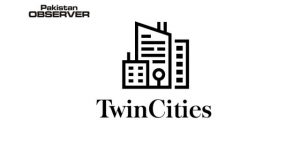Zubair Qureshi
The Islamabad High Court (IHC) has suspended section-89 of the Pakistan Panel Code (PPC) that allows use of corporal punishment “as a means to discipline and correct the behaviour of under-12 children.”
Chief Justice of the IHC Justice Athar Minallah passed this order on Thursday while hearing a petition filed by eminent child rights activist and a popular singer and musician Shehzad Roy.
The court also issued notice to the government and other respondents and sought reply from them in two weeks.
The said article gives the teachers a licence to beat students and says “Nothing which is done in good faith for the benefit of a person under twelve years of age by or by consent of the guardian or other person having lawful charge of that person, is an offence by reason of any harm which it may cause.”
In his petition, Roy argued that Section 89 of the PPC allows for use of violence and force against children.
“Last year, a child succumbed to corporal punishment in a school of Lahore,” Roy’s counsel told the court saying that the matter of abolishing the use of corporal punishment was in the public interest.
The counsel for Roy while explaining the reason for Roy’s interest in the matter said the singer-turned-activist had also founded an organisation Zindgi Trust for educational reforms.
While hearing the petition, Chief Justice recalled Parliament had also passed a bill on the matter.
Article 89-A whereas allows corporal punishment of under-12 it emphasises “such punishment is required to be moderate and reasonable.”
Counsel for Shehzad Roy submitted before the court that he wanted use of corporal punishment was banned while the parliament goes about making laws on the matter, the lawyer responded while adding that corporal punishment had adverse effects on children’s mental and physical health.
Justice Minallah after hearing arguments suspended section 89 of the Pakistan Penal Code and remarked that the interior ministry should safeguard the rights of children. The court also sought reply from the government by March 5.
Later while talking to the media outside the court, Roy said: “When a child is born, parents beat him, when he goes to school, teachers drag him, when he grows older and goes out in the society, police torture him to make him a better person. On the contrary, research shows that the use of violence only increases violence.”
“I am grateful that the operation of brutal, inhuman & unconstitutional colonial-era law section 89 has been suspended/stopped by Chief Justice Athar Minallah on @ZindagiTrust petition in all the federal jurisdiction & Islamabad. Congrats to all my dear children of Islamabad & Pakistan,” Shehzad Roy posted on twitter.









